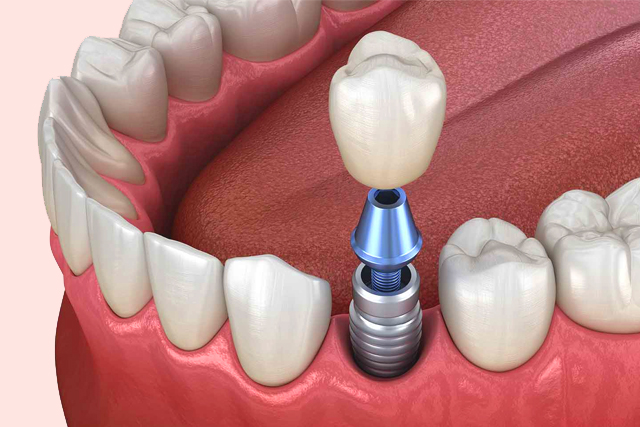Dental implants have revolutionized the field of dentistry, offering a durable and long-lasting solution for missing teeth. If you’re considering Dental implants Melbourne, one of the most common questions you might have is, “How long do dental implants last?” In this comprehensive guide, we’ll explore the lifespan of dental implants and what you can expect from this remarkable tooth replacement option.
Understanding Dental Implants
Before diving into their lifespan, let’s quickly recap what dental implants are. Dental implants are artificial tooth roots typically made of titanium, surgically placed into the jawbone beneath your gums. Once in place, they provide a stable foundation for mounting replacement teeth, such as crowns, bridges, or dentures.
Factors Influencing Longevity
The longevity of dental implants can vary from person to person and depends on several factors:
- Oral Health Maintenance: Proper oral hygiene, including brushing, flossing, and regular dental check-ups, is crucial for the longevity of dental implants. Good oral health practices help prevent gum disease and implant-related complications.
- Bone Density and Quality: The success of dental implants relies on the integration of the implant with the surrounding bone. Individuals with adequate bone density and quality are more likely to experience long-term implant success.
- Smoking: Smoking can significantly impact the lifespan of dental implants. It can impede the healing process after implant surgery and increase the risk of implant failure due to reduced blood flow and compromised immune function.
- Overall Health: Certain systemic health conditions such as diabetes and autoimmune disorders can affect the body’s ability to heal and may impact the success of dental implants.
- Implant Placement and Design: The skill of the oral surgeon and the type of implant used can influence longevity. Proper placement of the implant and selecting the appropriate size and design are essential for optimal outcomes.
What to Expect: Longevity and Success Rates
Now, let’s address the burning question: how long do dental implants last? While there’s no definitive answer, studies have shown that dental implants have an impressive success rate and can last for decades with proper care.
Research suggests that Dental implants Melbourne have a success rate of over 95% after ten years, and many implants can last a lifetime. However, it’s essential to understand that individual experiences may vary.
Realistic Expectations and Maintenance
While dental implants offer an excellent long-term solution for tooth replacement, it’s essential to have realistic expectations. Like natural teeth, dental implants require regular maintenance and care to ensure their longevity.
- Routine Dental Check-ups: Schedule regular visits to your dentist for check-ups and cleanings. Your dentist will monitor the health of your implants and address any issues promptly.
- Good Oral Hygiene Practices: Maintain excellent oral hygiene by brushing at least twice a day, flossing daily, and using an antiseptic mouthwash. Proper oral care helps prevent gum disease and peri-implantitis, a condition that can lead to implant failure and higher dental implants cost.
- Avoiding Harmful Habits: Avoid habits that can compromise the integrity of your implants, such as smoking or chewing hard objects like ice or pens.
- Healthy Lifestyle Choices: Adopting a healthy lifestyle, including a balanced diet and regular exercise, can contribute to overall oral and systemic health, supporting the longevity of your dental implants.
Conclusion
In conclusion, tooth implants are a reliable and long-lasting solution for replacing missing teeth. While the exact lifespan of dental implants varies depending on individual factors, they can endure for decades with proper care. By understanding the factors that influence implant longevity and following recommended maintenance guidelines, you can enjoy the benefits of dental implants for years to come. So, remember that with the right care, dental implants can last a lifetime. Search for “dental implants near me” today to get started.
Frequently Asked Questions:
- How long do dental implants last?
Dental implants have an impressive success rate, with many lasting for decades or even a lifetime. Studies suggest a success rate of over 95% after ten years. However, individual experiences may vary depending on factors such as oral health maintenance, bone density, and overall health.
- Is the implant procedure painful?
The implant procedure is typically performed under local anaesthesia, ensuring minimal discomfort during the surgery. Some patients may experience mild soreness or discomfort afterward, which can be managed with over-the-counter pain relievers. Your dentist will provide instructions for post-operative care to help minimize any discomfort.
- Are dental implants suitable for everyone?
While dental implants are a versatile option for most individuals missing one or more teeth, certain factors may affect candidacy. Adequate bone density and healthy gums are essential for implant success. Your dentist will evaluate your oral health and medical history to determine if dental implants are the right choice for you.
- How do I care for my dental implants?
Proper oral hygiene is essential for maintaining the longevity of dental implants. Brushing at least twice a day, flossing daily, and using an antiseptic mouthwash help prevent gum disease and peri-implantitis. Regular dental check-ups are also crucial for monitoring the health of your implants and addressing any issues promptly.
- What if my dental implant fails?
While implant failure is rare, it can occur in some cases. Symptoms of implant failure may include pain, swelling, or mobility of the implant. If you experience any signs of implant failure, contact your dentist immediately for evaluation and appropriate treatment. In some instances, the implant may need to be replaced or additional procedures performed to ensure optimal outcomes.

